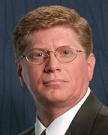 LAST BLOG OF THE REGULAR SESSION
LAST BLOG OF THE REGULAR SESSIONIt may appear to take time to move legislation, and from time to time the legislature does intentionally hold a few bills over for consideration on the last night of session. This action allows the media an opportunity to broadcast the legislature "live and in session," offering many West Virginia’s a seldom seen view of the legislative process. Unfortunately this also lends credibility to the unsubstantiated story that the legislature does nothing until the last week of session. In all honesty, beginning on the fortieth day of session many legislators are held captive in committee rooms, debating the merits of cross over bills from the Senate.
As the session progresses the committee on House Rules selects bills which will be placed on the House calendar for consideration during the last few hours of session, with this selection also comes a few surprises, including last minute amendments, conferee meetings, and the unexpected burst of debate over subjects most likely dear to someone’s heart.
The last night of session is often labeled as "hurry up and wait, "with numerous pieces of legislation delayed for the simple purpose of subjecting it to the bartering that always accompanies the last night. Bartering does occur and as ugly as it may seem deals are often cut during the last few hours of session, subjecting legislation to last minute changes and often a little heartburn for more than one legislator.
The last night of session will also remain a time of reflection for many legislators as we approach the final hour. It has often been compared to graduation and for many legislators it is just that, with numerous members opting not to return to service in the House. Including some of my favorites, Speaker Bob Kiss, Delegate Charles (Charlie) Trump, and one Delegate who will be a favorite of many long after he has left the House . . . the gentleman from Ritchie County, Delegate Otis Legget. We wish them all the best in all in all their endeavors.
